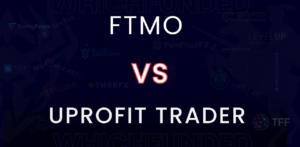Introduction
In the world of forex trading, ECN (Electronic Communication Network) brokers have gained significant popularity due to their transparency and direct market access. However, one aspect that traders need to consider when choosing an ECN broker is the associated fees. In this comprehensive guide, we will delve into the topic of ECN fees, exploring what they are and providing practical strategies to avoid or minimize them. We will also discuss the importance of choosing the right broker, transparent pricing, and leveraging promotions to optimize your trading experience.
1. Understanding ECN Fees
ECN fees are charges imposed by ECN brokers to facilitate their operations and maintain the infrastructure required for direct market access. While it is not possible to completely avoid ECN fees, it is crucial to understand how they work and identify strategies to minimize their impact on your trading profitability.
2. Choosing the Right ECN Broker
Selecting the right ECN broker is a critical step in avoiding excessive fees. Look for brokers that have established relationships with reputable liquidity providers, as this can result in better pricing and lower fees. Conduct thorough research, read reviews, and compare the fee structures of different brokers to make an informed decision.
3. Strategies to Minimize ECN Fees
3.1 Avoiding Overnight Fees
One way to minimize costs is by avoiding overnight fees. These fees are typically charged on leveraged positions that are held open overnight. Consider closing your positions before the market closes or minimizing the duration for which trades are left open to reduce these additional charges.
3.2 Emphasizing Transparent Pricing
Transparency is paramount when selecting an ECN broker. Some brokers may claim to be ECN brokers but still charge high spreads and fees, which can significantly impact your trading costs. Prioritize brokers that provide clear and detailed information about their pricing structure, enabling you to make informed decisions.
3.3 Opting for Free Trading Platforms
Several brokers offer free trading platforms, such as cTrader, which are specifically designed for ECN trading. These platforms provide advanced features and direct market access without any additional costs. Prioritize brokers that offer these free platforms, as they can help you avoid unnecessary expenses.
3.4 Capitalizing on Promotions
Brokers often run promotions and offer additional features or benefits to attract traders. Keep an eye out for such promotions, as they can help offset some of the ECN fees or provide value-added services. For example, some brokers may offer rebates or free Virtual Private Servers (VPS) based on your trading volume.
4. Exploring Common ECN Fees
To better understand ECN fees, let’s explore some of the most common charges associated with ECN trading:
4.1 Bid-Ask Spreads
ECN brokers typically offer tight spreads, starting from 0 pips. However, there may still be a small spread, such as 0.2 pips, on major forex pairs. Spreads represent the mark-up on the asset and serve as a source of revenue for the broker. It’s important to consider the spread when calculating your trading costs.
4.2 Commission per Lot
ECN brokers often replace spreads with small fixed commissions per lot traded. The commission amount varies based on the currency pair but is typically around $6 per lot. While commissions are generally lower than high spreads, they should be factored into your trading strategy.
4.3 Overnight Fees
Overnight fees, also known as rollover fees, are charged by most CFD brokers, including ECN brokers. These fees apply to leveraged or CFD positions that remain open after the market closes. While typically minimal, they can accumulate if positions are held open for extended periods.
4.4 Trading Platform Costs
While many popular trading platforms, such as cTrader, are free, some brokers may offer proprietary platforms that come with additional costs. Be mindful of any charges associated with using specific platforms and assess whether the benefits outweigh the expenses.
4.5 VPS Fees
Virtual Private Servers (VPS) provide stable and secure connections for automated trading strategies. Some brokers offer free VPS services based on trading volume, while others may charge an additional fee for VPS access. Consider your trading requirements and evaluate the value of utilizing a VPS against the associated costs.
Key Takeaways:
- ECN fees are charges imposed by ECN brokers to facilitate their operations and maintain direct market access.
- While it is not possible to completely avoid ECN fees, you can minimize their impact through strategic decision-making.
- Choosing the right ECN broker with reputable liquidity providers is essential for accessing better pricing and lower fees.
- Avoiding overnight fees by closing positions before the market closes or minimizing their duration can reduce additional charges.
- Prioritize brokers that offer transparent pricing structures, providing clear information about spreads, commissions, and other fees.
- Consider utilizing free trading platforms designed for ECN trading, such as cTrader, to avoid unnecessary expenses.
- Keep an eye on broker promotions, rebates, and additional features that can offset some ECN fees or provide value-added services.
- Understand the common ECN fees, including bid-ask spreads, commissions per lot, overnight fees, trading platform costs, and VPS fees.
- Evaluate the costs and benefits of each fee component and factor them into your trading strategy.
- Continuously assess your trading costs and explore alternative broker options if the fees significantly impact your profitability.
By implementing these strategies and staying informed about fee structures, you can navigate the world of ECN trading more effectively and optimize your trading results. Remember to regularly review your trading costs and adapt your approach as the market and broker offerings evolve.








